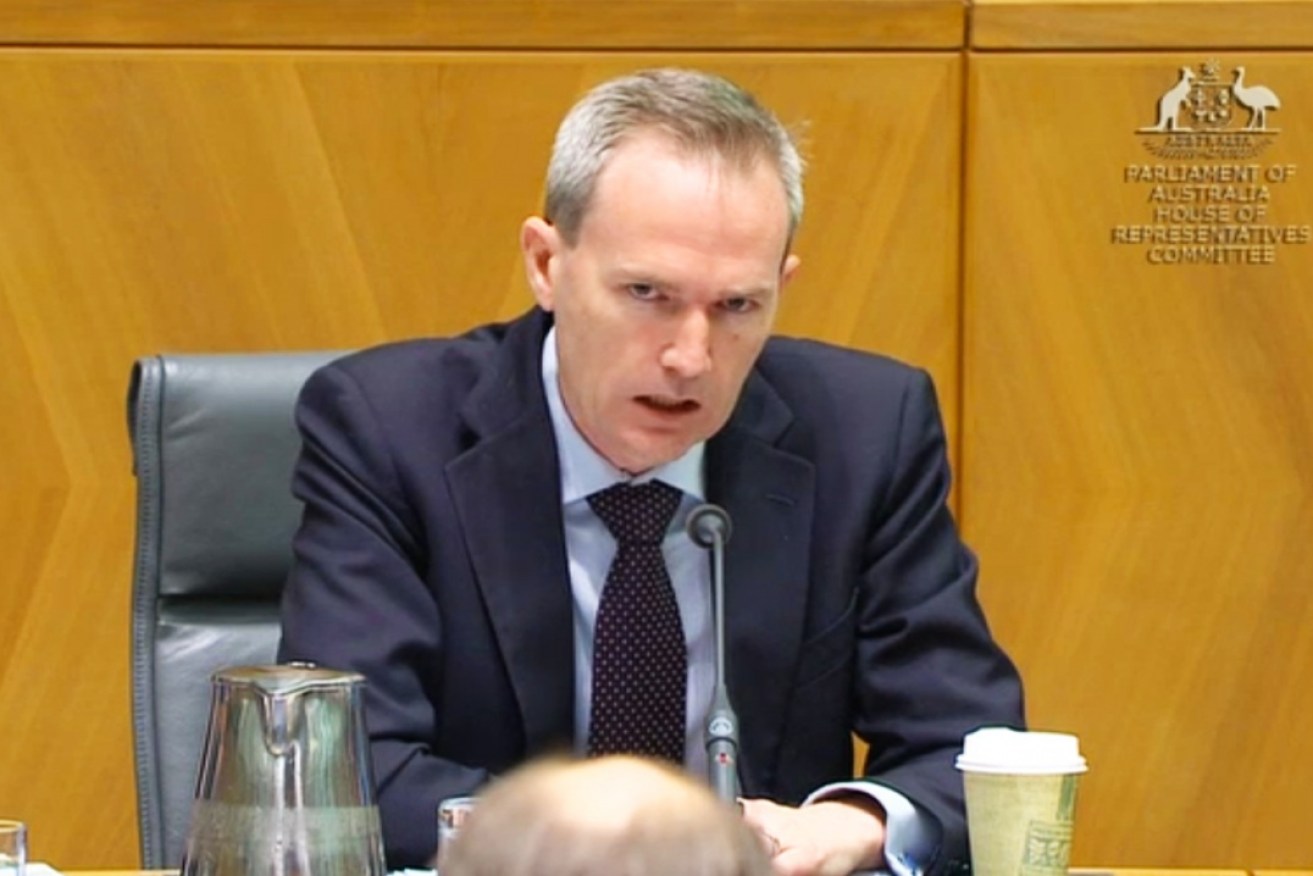This is where the bank hearings are heading

Immigration Minister David Coleman says medical transfers would open the floodgates Photo: AAP
A bank tribunal is crystallising as the government’s preferred outcome from this week’s hearings, with consumer advocates fearing it will be used to kill off a royal commission.
ANZ chief executive Shayne Elliott told the economics committee on Wednesday a tribunal was a “good idea”. A day earlier, CBA boss Ian Narev said he was “absolutely open” to it.
In his questions to both men, committee chair David Coleman, a Liberal MP, described the tribunal as an “idea that has some merit” and one “the committee is obviously likely to be interested in looking at”.
The tribunal is likely to be partially funded by the banks, low-cost for consumers, and have the power to subpoena documents, make binding rulings and impose monetary penalties, based on the committee’s questions and recent interviews.
But a spokesman for the Australian Lawyers Alliance (ALA), which represents consumer and plaintiff lawyers, said the tribunal is a diversionary tactic to “ward off” a royal commission.
“It’s not surprising the banks are amenable to the proposition,” ALA financial services spokesman Josh Mennen said.
Reform is needed, he said. The current complaints forums lack the power to properly compensate victims, are overly complex and “miserably underfunded”. But the lawyers alliance disagrees a tribunal is the solution.
“This is being touted as an achievable compromise by the government, but we are not satisfied that setting up a further tribunal would reduce complexity.”
There are currently four complaints forums: the Financial Ombudsman Service (FOS), the Credit and Investments Ombudsman (CIO), the Australian Small Business and Family Enterprise Ombudsman (ASBFEO), and the Superannuation Complaints Tribunal.
Gerard Brody, head of the Consumer Action Law Centre, said these bodies should be folded into one. But they should be consolidated into the “very accessible” Financial Services Ombudsman, not a “legalistic” tribunal.
“Improvements can be made, but the FOS is accessible, not legalistic and not costly for consumers to access. It can all be done over the phone or online,” Mr Brody said.
“We’re not convinced a new tribunal will meet those benchmarks around accessibility and providing fair outcomes.
“Importantly, the FOS considers the law, good industry practice and what’s fair and reasonable in all circumstances. A tribunal will only be able to consider the law, so I can’t see how a tribunal outcome will be better.”

Liberal senator Fawcett said the proposal has been led by the Coalition backbench, not at the cabinet level. Photo: AAP
The origins of the idea can be traced to a recent parliamentary inquiry into business loans. It recommended in May that one of the existing complaints bodies, the ASBFEO, be empowered to act as a tribunal to deal with particularly contentious, unresolved cases.
The chair of that inquiry, Liberal senator David Fawcett, said the report put in motion an “evolution of thinking”, led from the Coalition backbench, that resulted in the consolidated tribunal proposal.
“It’s fair to say the lowest impact in terms of cost, time and effort for an individual or small business is an ombudsman-type scheme, but often because there isn’t the same level of rigour, then the powers of that ombudsman are limited, whereas a tribunal tends to be given more powers,” Senator Fawcett said.
“There’s a step up in complexity, but there’s also a step up in their scope to resolve issues that are contentious.”
Prime Minister Malcolm Turnbull, Treasurer Scott Morrison and Financial Services Minister Kelly O’Dwyer have all recently drawn attention to the fact that the independent Ramsay review is considering a bank tribunal.
But this review is not expected to release its findings until March 2017. It is unknown if the economics committee might recommend the creation of a tribunal before then.

It’s ‘no surprise’ Shayne Elliott and Ian Narev leapt at the idea, a consumer lawyer says. Photo: AAP
A spokesperson for the Financial Ombudsman Service said whatever the outcome of the Ramsay review, it should be “less rather than more” costly, legalistic, adversarial and complex.
“Importantly, we want to see less rather than more complexity for consumers in resolving financial disputes. We also want to avoid changes that could lead to a more costly, adversarial and legalistic approach to dispute resolution for consumers and small businesses,” the FOS spokesperson said.
The Finance Sector Union agreed the Coalition seems to be pushing for a tribunal. “None of this will change culture or distract them from business as usual after a few weeks,” acting national secretary Geoff Derrick said.
Jocelyn Furlan, former chair of the Superannuation Complaints Tribunal, said she was unsure what problem a new bank tribunal would solve.
The Coalition is also pushing for:
- Action on excessive credit rate interest rates, especially cash advances;
- An easier way for customers to switch between the banks (Liberal chair David Coleman said the current process has “completely failed and doesn’t work”);
- Regulatory action to force the banks to pass on Reserve Bank rate changes on some home loan products;
- More disciplinary action (”heads on pikes”, as one observer described it) when bank misconduct is proven.
NAB and Westpac will appear before the economics committee on Thursday.








